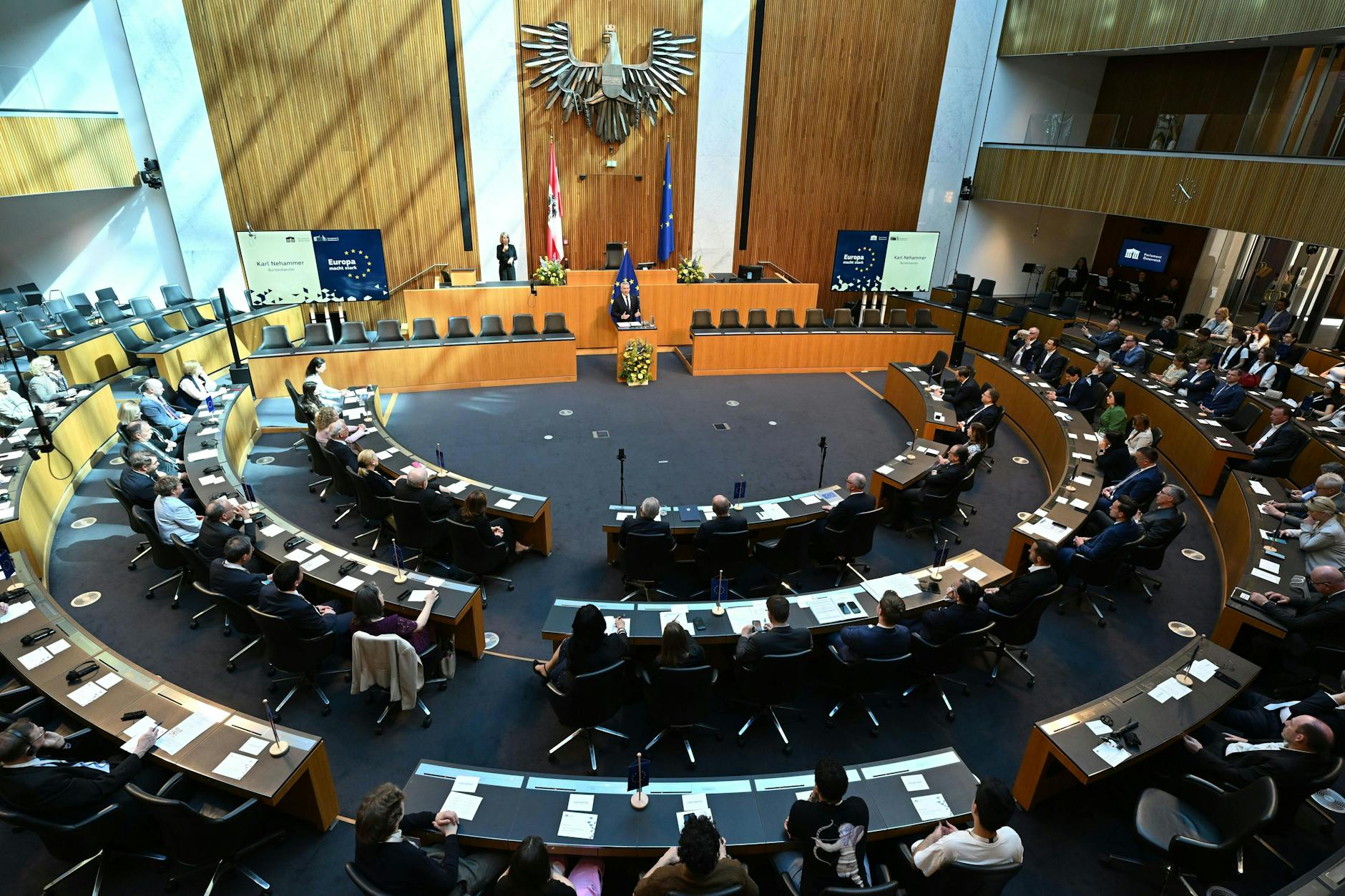Conservative Indifference: How Infinite Genders Are Becoming the Norm

Laws, once enacted, often remain in place, even if they age poorly. What is dismissed in the initial stages as a technical minor matter, symbolic progress, or ideological guerrilla warfare often turns out in retrospect to be a costly form of institutionalized negligence.
This is particularly evident in projects to legally enshrine gender diversity. Hardly any other policy area is under such fire: a celebrated prestige project for the progressive left and liberal center, a calculatedly exploited opportunity for the right – and, perhaps most dangerously, a place of political lethargy in conservative circles. This mixture of enthusiasm, demonization, and indifference has created a climate in which fundamental questions can hardly be asked before the supposed answers are enshrined in law.
Gender policy: The Austrian conservatives made a “mistake”Austria provided a prime example of this in the fall of 2024 – just during the final session of the outgoing legislative period. In the amendment to the Federal Equal Treatment Act, the previous phrase "equality between women and men" was summarily replaced with the more general phrase "equality based on gender." What appears to be a linguistic modernization turns out, upon closer inspection, to be a far-reaching ideological restructuring.

The law now defines "gender" not only in biological terms, but also explicitly in social terms: as gender identity, gender expression, and gender role. This new definition applies to the entire federal service – and changes not only discrimination protection, but also the legal basis for equal opportunity measures. It sets a legislative precedent that is likely to have an impact beyond the specific scope of application and contributes to the emergence of an increasingly incoherent, internally contradictory legal system. Gender self-determination thus entered through the back door.
The amendment was introduced and passed by the coalition parties at the time, the Christian-conservative ÖVP ( Austrian People's Party) and the Greens. On the day of the vote—as well as during the preceding two-year negotiation phase—it seemed as if hardly anyone understood (or even read) what was being passed as part of a comprehensive amendment to the civil service law. When the changes and initial criticism of them became public, the ÖVP (Austrian People's Party) sought to avoid being seen as a gender-political wrong-way driver before the election. It hastily backtracked, calling it an "oversight" and promising a "repair." This, unsurprisingly, never materialized.
A pattern that can also be seen in Germany: With the Self-Determination Act, many hoped in vain that the CDU would at least defuse the most obvious absurdities – such as the ban on disclosure, which makes public discussion about a person's biological sex after a change in their gender registration punishable by law. Or the de facto lack of an age limit, which allows even twelve-year-olds to change their official gender with simple parental consent. Even the much-vaunted protection provided by "house rules" remained vague: Further tightening measures that could prevent costly court proceedings – such as in the case of a women's gym that objected to a transgender man using the women's showers – failed to materialize.
The conspicuous silence on the topic of genderIn Great Britain , it was the Tory government itself that introduced the Gender Recognition Act in 2004 – laying the foundation for today's de facto gender self-determination. And it was also the government that allowed the (now closed) Tavistock Gender Clinic to continue operating for years, despite mounting reports of medically negligent treatment of a growing number of underage patients.

The period of active blockade of equality for lesbians and gays seems to continue to have a conservative trauma. As a guilty conscience, it leads to compromises and convenient symbolic politics – for example, in the form of interparliamentary LGBTIQ working groups.
The conspicuous silence on the topic of gender could perhaps be explained if conservatives truly feared being alone in this or being considered outdated. But that is no longer the case. Numerous individuals and groups have already exposed themselves, many of them from the progressive spectrum, often at considerable risk to their careers or reputations.
In Ireland, public debate on gender is avoidedMeanwhile, the strategic playbook of queer activism continues: The so-called Dentons Document, published in 2019 by the international law firm Dentons in cooperation with the Thomson Reuters Foundation and the LGBTIQ+ youth organization IGLYO, is a handbook for policy implementation and public communication on gender identity legislation. It bears the unambiguous title "Only Adults? Good Practices in Legal Gender Recognition for Youth" and contains a remarkably blunt advice: It recommends introducing legislative initiatives as quietly as possible, for example as part of larger legislative packages or in the final phase of legislative periods when media attention is lower.
See Ireland : There, the government – with the participation of the Christian-conservative Fine Gael – passed a self-determination law in 2015 that was closely linked to the discussions on marriage for all – a topic that already met with broad social approval at the time.
In order to advance the legal recognition of gender identity internationally, especially among young people, it is recommended that political communication should focus on so-called “safe messages” and that public debate should be avoided wherever possible, as this could jeopardize the prospects of success.
This communication strategy is no longer just a theoretical simulation game of international NGOs, but a global export model for ideologically driven legislative initiatives, in which critical questions about the impact on women's spaces, fairness, the protection of minors or freedom of expression are systematically delegitimized as "transphobic" instead of being negotiated publicly.
Why don't the conservatives wake up?But anyone who thinks all this is enough impetus for the conservatives to wake up and end their remarkable apathy is mistaken. In fact, some conservatives who are leaning back are now betting that the right will soon turn things around: be it Trump, the AfD , the FPÖ, Orbán, Meloni, or Le Pen.
However, repressive blanket measures like Viktor Orbán's ban on the Rainbow Parade are not only an autocratic attack on fundamental democratic rights such as freedom of assembly. They also contradict every core Christian-democratic value system and ultimately serve as a welcome mobilization boost and political leverage for the queer movement and its allied parties.
Especially at a time when international funding like that from USAID is being cut and the recent ruling by the British Supreme Court is perceived as a bitter setback. Completely unbounded actions – from burning rainbow flags to ignoring real problems like gender dysphoria, familial and societal homophobia, or psychological distress among young people – are not a solution, but rather a culture-war spree that causes social damage and is rightly criticized as " woke right ."
It's time to roll up our sleeves and get to workThe answer to this impasse lies neither in “folding hands, keeping your mouth shut” (Austrian for: praying and keeping your mouth shut) nor in ideological one-sidedness and derogatory exaggeration – but in the willingness to embrace complexity and diversity of voices of those who believe in resilient democratic processes.

There would be a broad field of activity for conservatives here: They could create platforms and visibility for critical voices—even for those with whom they fundamentally disagree on other issues. For parents who fear for their children. For feminists who speak from decades of practice and theory. For detransitioners whose experiences and needs have so far been largely neglected. And they could provide resources.
Scottish author JK Rowling , one of the most prominent voices in the gender-critical movement, has once again invested money and established a legal aid fund to support women in the United Kingdom and Ireland in asserting their gender-based rights in court. A comparable conservative initiative has not yet been seen in Europe—and certainly not one backed by individuals willing to commit financially with even such courage and determination. Meanwhile, the Global Philanthropy Project has quickly raised nearly $150 million in pledges for the global fight for LGBTI rights.
Those who cut corners on prevention—or simply sleep on it—not only pay for it with their political credibility, but also actively participate in a social transformation with very real consequences and a mercilessly long half-life. Those who don't want that will have to roll up their sleeves and get to work themselves. No knight in shining armor will appear—not from the right, not from the left, and certainly not from a conservative center playing for time.
Berliner-zeitung





